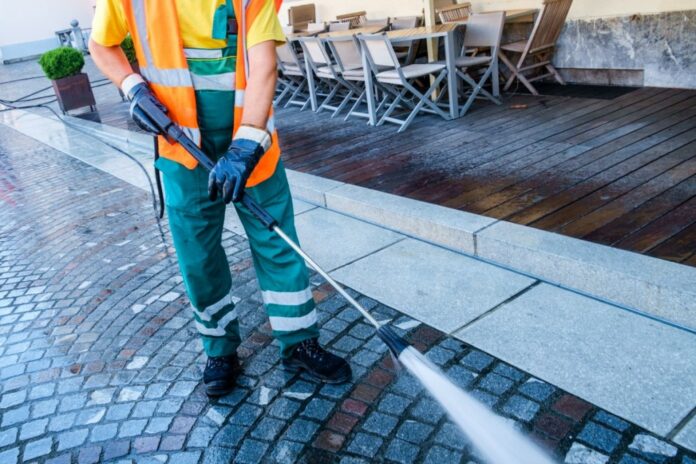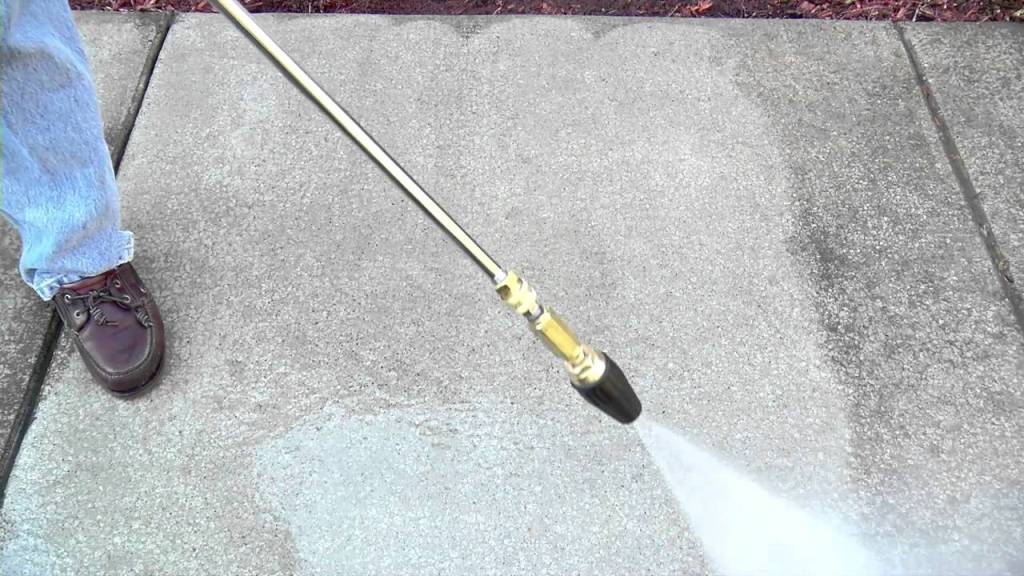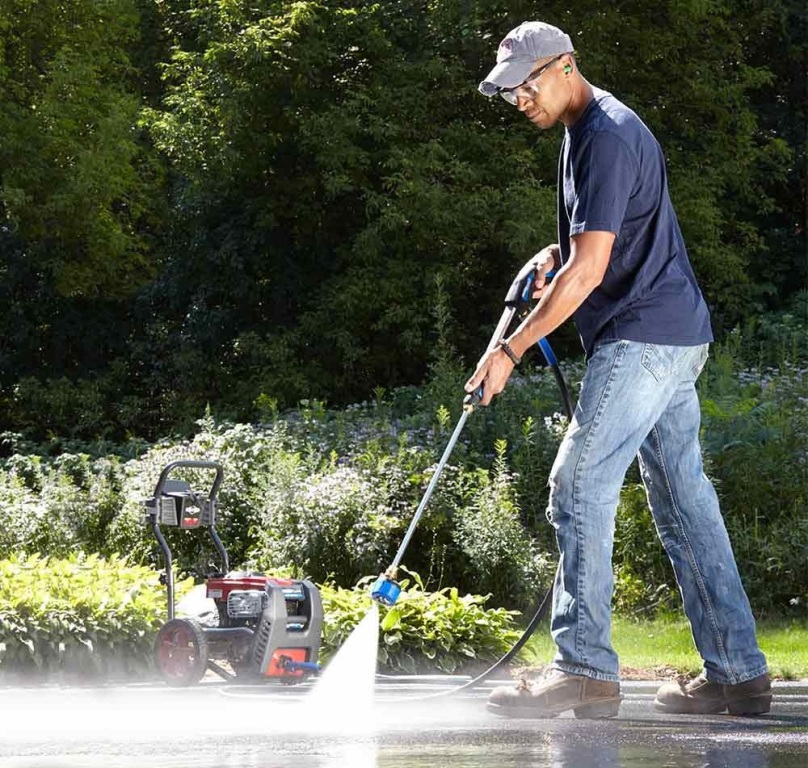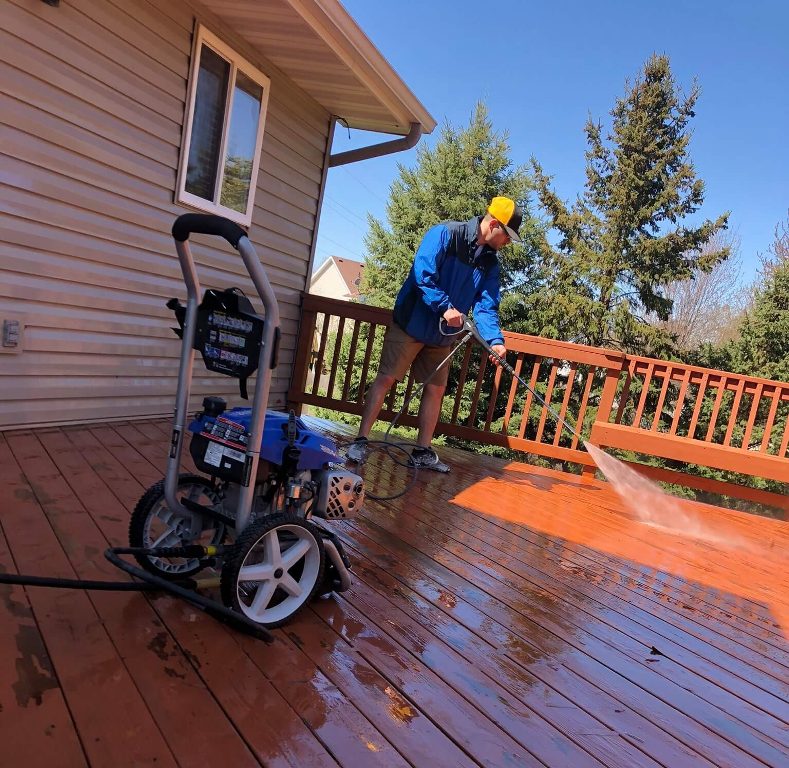As a homeowner, you’re responsible for cleaning the exteriors of your property. Regardless of how expensive your home is, neglecting the need to maintain the cleanliness of your exteriors can lessen its value and create a negative impression among your guests.
Do you think they’ll have the interest to stay indoors if your home’s exteriors look poorly maintained? How can you attract homebuyers or become proud of your investment if you’re not confident about how your home looks from the outside? Thus, keeping your home’s exteriors clean is important, which is why you should exert time and effort to accomplish this task.
Pressure washing is a great way to keep your exteriors clean. This cleaning method allows you to clean hard-to-reach areas of your home without the need to climb in high areas.
If you don’t have the time to do everything by yourself, you can always hire a professional cleaning company. This is a great option because there are a lot of benefits of hiring a professional pressure washing company, such as convenience, efficacy, and safety.
But, regardless of how and who will use pressure washing on your home’s exteriors, it’s important to always follow these tips during the process:
1. Choose the Right Nozzle
Pressure washer nozzles are not ‘one size fits all.’ Rather, most washers come with several different nozzles, each with a different purpose. Some nozzles are better suited for certain jobs. In difficult or hard to reach locations, try an angular nozzle. These will let you work at a weird angle and fit into odd spots. For delicate jobs, consider a wide spraying nozzle, as these will decrease the pressure of the water coming out of the washer. Conversely, tough dirt and grime will likely require a narrow nozzle, to retain as much pressure as possible. If your power washer only came with one nozzle or tip, consider buying an attachment set before your next project.
If this is still your first time using a pressure washer, research and determine which type of nozzle best fits your needs. Using the wrong nozzle can potentially damage your property and won’t result in clean surfaces. When this happens, you’ll only waste time and effort in using a pressure washer.
2. Consider your Water Supply
Pressure washers need a lot of water to be effective. Usually, the intake is listed on the machine, but it is usually several liters per minute. Some garden hoses may not have this capacity. Thus, try a test before hooking up your machine. Using a 20-liter bucket, time how long it takes to fill the bucket by the hose. This can provide you a rough estimate of your water supply capacity – and if it is enough to power your power washer. If not, there may be ways to boot your capacity.
As the name suggests, pressure washing will use pressure to clean different surfaces of your home. Without pressure, you’ll only be pointing a hose in your home’s exteriors and won’t be able to remove any dirt. Make sure that this doesn’t happen by considering your water supply first before using a pressure washer.
3. Be Safe
While pressure washers are not the most dangerous of tools, there are certain factors to consider. The single biggest danger is electricity. Obviously, water and electricity don’t mix. Before beginning any power washing project, take several minutes to ensure that there are no exposed electrical outlets, power cords, lights or other connection points that may be exposed to water. Covering all connection points tightly in plastic should be enough, although for intensive jobs you may wish to shut the power off at the breaker. All exposed wires and incomplete wiring should be covered, too. If your lights have glass bulbs, remove those and then cover the exposed socket. The best way to ensure that your job is done safely and correctly is to hire a professional pressure washing company.
4. Ask for Help
While water pressure cleaning is mostly safe, it is okay to feel uncomfortable performing certain jobs. Or, you may not be physically up to the task! Power washing can be hard labor and you may not have the time and energy to complete the jobs that you have in mind. In these cases, the best power washing tip is to consult a professional. Experts, like those at JC Eco Blasting, have industrial equipment and years of experience. Instead of risking your own safety and well-being for the tougher jobs, let those with special training do it for you. There is no shame in asking for help!
5. Protect all Surroundings
Plants and glass should be the two priorities when getting your property ready to protect. Plants can be fragile and could be severely damaged by a pressure washer. Usually, a taught tarp can be pulled over any sensitive plants to protect them from runoff. When power washing your house, be extremely cautious of windows. These are difficult to protect, although plastic sheeting can help. Plywood or other temporary barriers can also work well when trying to protect windows. The pressure of the water is enough to break windows if not protected. Beyond plants and windows, consider other aspects of your home’s exterior. Are there sections of flimsy siding or paneling? Can the power washer damage window trim or other details? These are the questions you should be asking yourself when preparing a site on your property to power wash.
6. Choose Chemicals Carefully
While some people choose to just use water, others elect to add a chemical to aid the cleaning process. In general, the chemicals used will depend on the surface being cleaned. Bricks and porous materials are less susceptible to chemical damage than wood and plastic, although there are still considerations. Remember that during the cleaning process, some of the chemicals that you choose to use will likely end up on your skin. If this bothers you, choose a less caustic chemical or wear more protection on your hands and body. Additionally, be cautious of the run-off. When more dangerous chemicals are used, the run-off water could kill nearby plants and animals.





















